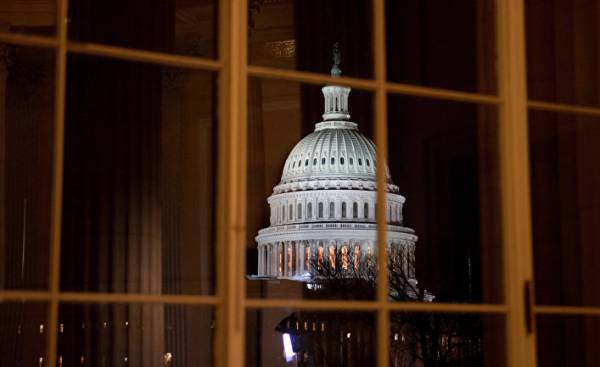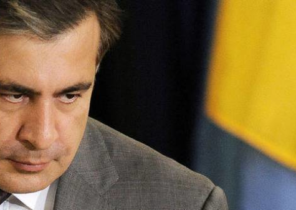
On Thursday, the Senate approved a massive bill to impose new sanctions against Russia restrict the right of President Donald trump. Now the document will go to the President’s Desk.
The bill, which gives Congress new powers to block initiatives of the President on the easing of sanctions against Moscow, was approved by the Senate, 98 senators supported the bill and two voted against. On Tuesday, the bill approved by the house of representatives (419 votes in favor and 3 against).
This bill is one of the first important legislative documents during the presidency of trump, which was supported by the representatives of both parties. It actually limits the powers of the President in matters relating to the easing of sanctions against Russia.
The bill also includes new sanctions against Iran and North Korea. It was the result of lengthy discussions and negotiations between the house of representatives and the Senate, which several times developed into squabbles and the exchange of claims between the two parties and chambers, and then the document was agreed upon in the final version.
The white house reported, signed trump the bill. On Thursday morning a new communications Director in the White house Anthony of Scaramucci (Anthony Scaramucci) suggested that the President may veto the bill.
“He can sign the bill on sanctions in the form in which it exists now, or may veto it and to discuss the introduction of more stringent measures against the Russian,” — said Scaramucci, speaking in the broadcast of New Day on CNN.
However, legislators who were the initiators of the amendments on sanctions, it is highly skeptical about the possibility of trump to veto the bill. It was approved by both houses of Congress by overwhelming majorities, that allows you to cancel a presidential veto.
“I talked with the President recently, and on Tuesday evening I talked to (Secretary Rex) Tillerson. I don’t think it is possible, — said the Chairman of the Senate Committee on foreign relations Bob Corker (Bob Corker). — I just can’t imagine — look at the number of votes.”
The Senator from Maryland, a senior Democrat of the Senate foreign relations Committee Ben Cardin (Ben Cardin) said that Congress no doubt will override the veto.”
“This bill gives the President the opportunity to show their determination, hard position. But if he vetoes the bill, it is a sign of weakness, said Cardin in an interview with CNN. If he vetoes the bill, it will be an indication of indecision of the President, “weakness” towards Russia”.
Although the bill on sanctions, of course, Trump sent for consideration (as soon as the White house will officially issue its receipt, he will have 10 days to sign the bill or veto it), the day before the fate of the document was unclear.
Before the house of representatives approved a bill between Bob Corker and majority leader in the house of representatives Kevin McCarthy (Kevin McCarthy) there was a skirmish due to the package of sanctions against North Korea, which McCarthy added to the bill without the consent of the Corker.
Corker threatened to remove from the bill the part dealing with North Korea, which Congress would have to discuss the bill, most likely after the parliamentary recess in August, which both Democrats and Republicans were hoping to avoid.
According to Democrats and some Republicans, the bill must be taken now — they are concerned that the White house is considering returning two objects of the Russian diplomatic property in new York and Maryland, arrested in December on the orders of the Obama administration in response to the intervention in the elections.
Corker and McCarthy agreed to approve the bill included house package “the North Korean sanctions.” In exchange, the house of representatives agreed to take any future bills on sanctions against North Korea, which will pass through the Senate.
Corker and other senators want to include a provision on the right of Congress to review the initiatives on easing sanctions against North Korea, similar to the situation in the current bill, under which Congress has the right to veto the easing of sanctions against Russia.
Before in connection with the sanctions against North Korea erupted controversy, the bill on sanctions for several weeks was in the house of representatives because of the numerous disputes on procedural issues. Because of this, Democrats accused Republicans of delaying consideration of the bill in the interests of the White house.
In the final version of the bill included some minor amendments to the text of sanctions against Russia, in order to remove the concerns of energy and other us companies, and European countries.
However, some European countries continue to Express concern, in particular, in connection with the gas pipeline between Germany and Russia.
Russia has threatened to retaliate, and on Thursday, Russian President Vladimir Putin called the new sanctions “illegal from the point of view of international law.”







